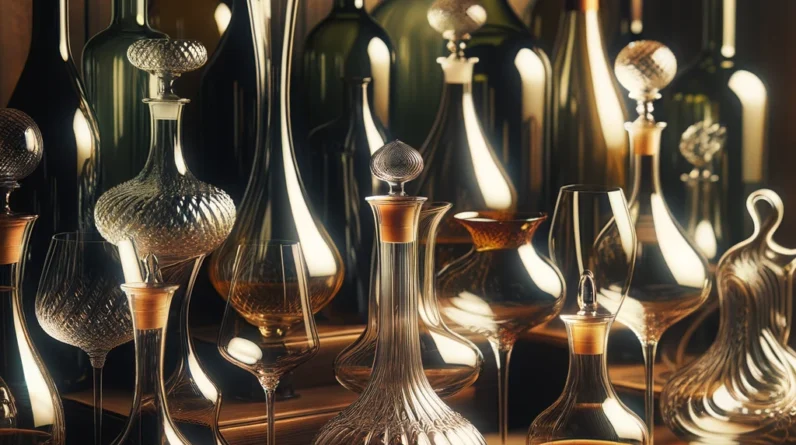
Introduction to Corked Wine
Definition and prevalence of corked wine
Did you know that corked wine affects around 5% of cork-enclosed bottles?
That’s right.
If you’re a wine lover, it’s likely that you’ll run into this issue.
But first, let’s get into what it means for wine to be corked.
The experience of encountering a corked bottle as a wine enthusiast
Imagine you’ve been looking forward to that special bottle.
You pop it open, take a sniff, and something’s off.
Not the vibrant aroma you were expecting.
Instead, it’s… off.
And just like that, you’re in the 5% club.
Misconceptions about Corked Wine
What corked wine isn’t:
Floating cork pieces
Ever found pieces of cork floating in your glass?
While it might not be the prettiest sight, it’s not a sign of corked wine.
It’s just a pesky cork that broke apart.

Tartrate crystals
Those little white crystals at the bottom of your glass or on the cork?
They’re called tartrate crystals.
A natural and harmless part of some wines.
Smelling the cork itself
The smell of the cork won’t tell you if a wine is corked.
So, no need to give it a deep sniff.
Bottles with screw caps or synthetic corks
Here’s a fun fact: If your bottle has a screw cap or synthetic cork, it can’t be corked.
Safe zone!
The Science Behind Corked Wine
Nature of cork: derived from trees and bacteria in its pores
The cork?
It’s natural, straight from trees.
This means there’s always a tiny amount of bacteria lingering, regardless of how clean the process is.
Origin of cork taint: interaction between chlorophenol and fungus producing TCA
Let’s get geeky for a moment.
Cork taint happens when chlorophenol meets fungus in the cork.
This clash forms TCA, a compound you definitely don’t want in your wine.
Impact of TCA: destroys wine’s aromatics
TCA is the party pooper of wine aromatics.
It masks the lovely fruity scents you love, replacing them with a musty odor.
Think wet newspaper or a damp basement.
Not ideal for a relaxing glass of wine, right?
Identifying Corked Wine
The unique and unforgettable smell of a corked wine
Once you’ve experienced the distinct aroma of a corked wine, you won’t forget it.
It’s that unmistakable.
Comparing wine’s typical aroma profile with what you’re experiencing
If your wine usually bursts with fruitiness and now it smells like that old book from your attic, something might be up.
Learning through direct experience and tasting
Experience is the best teacher.
A corked wine encounter?
Consider it a lesson in wine appreciation.
Addressing and Avoiding Corked Wine
Health implications: corked wine is not harmful
First things first: drinking corked wine won’t hurt you.
The worst it can do is disappoint your palate.
Consumer rights: returning corked wine irrespective of its price
Bought a bottle and it’s corked?
Take it back.
Whether it’s $10 or $1,000, you deserve a wine that’s worth your money.
Alternative to cork: rise of screw caps in wines due to cork taint
Want to avoid the corked wine drama?
Go for wines with screw caps.
They were introduced to avoid cork taint.
And guess what?
Over 30% of the world’s wines now use them.
The reliability and increasing prevalence of screw-capped wines
More and more wines are now under screw caps.
Why?
They’re reliable and ensure you avoid the cork taint roulette.

While corked wine isn’t common (only 1 in 20 bottles), it’s an interesting hiccup in the vast world of wines.
Embrace it as a learning experience.
And, always remember to trust your senses.
FAQ
Q: Does corked wine mean there’s actual cork in the wine?
A: No, “corked” refers to the presence of TCA, which gives the wine an off aroma and taste.
Q: Are screw-capped wines inferior?
A: Absolutely not!
Screw caps are an excellent alternative to corks and ensure the wine inside remains untainted.
Q: Can I get sick from drinking corked wine?
A: No, corked wine isn’t harmful.
It might not taste great, but it won’t harm you.







